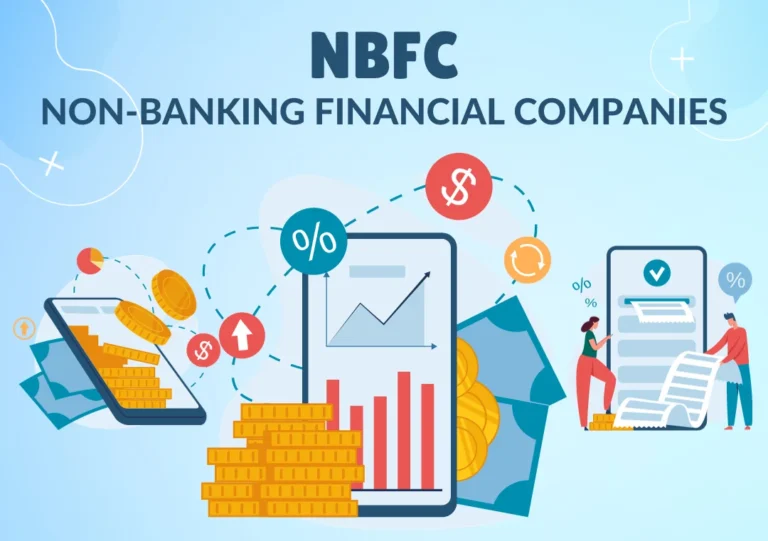Non-Banking Financial Companies (NBFCs) in India are required to file various returns and reports with the Reserve Bank of India (RBI) to comply with regulatory requirements and provide transparency about their operations. Here’s an overview of the key return filings that NBFCs need to undertake:
Statutory Returns to RBI
- DNBS 02: This return is filed quarterly by NBFCs that accept and hold deposits. It includes critical financial parameters and indicators. The NBFCs are required to file this return within 15 days of the end of each quarter. It provides important financial information to regulatory authorities.
- DNBS 10: The statutory auditor certificate (SAC) is an annual return filed by NBFCs. It should be filed within one month of finalizing the balance sheet. However, this return cannot be filed after December 31st of the relevant financial year. The return confirms the accuracy and completeness of the financial statements.
- DNBS 13: This return pertains to overseas investment details. NBFCs with overseas investments are required to file the DNBS 13 return every quarter. The filing deadline is 15 days after the end of each quarter. The return provides information on the NBFC’s investments made outside the country.
Compliance Reporting
1. KYC/AML Compliance
- NBFCs must ensure compliance with Know Your Customer (KYC) and Anti-Money Laundering (AML) norms.
- Reports related to KYC/AML compliance may need to be submitted periodically to regulatory authorities.
2. Compliance with Fair Practices Code (FPC)
- NBFCs are required to comply with the Fair Practices Code in their dealings with customers.
- Compliance reports or certifications related to FPC may need to be submitted periodically.
Other Regulatory Filings
1. Annual Audited Financial Statements
- NBFCs must prepare and file their annual audited financial statements, including balance sheets, profit and loss accounts, and cash flow statements.
- These statements are filed with the RBI and other relevant authorities.
2. Other Reports and Certifications
- Depending on the nature of activities and regulatory requirements, NBFCs may need to file additional reports, certifications, or disclosures.
- Examples include reports on corporate governance, internal controls, risk management practices, etc.
Filing Process and Compliance
- Timeline: NBFCs must adhere to specific timelines for filing each type of return or report as prescribed by the RBI.
- Online Submission: Most returns are filed online through the RBI’s reporting platform or portal designated for NBFCs.
- Accuracy and Completeness: It is essential for NBFCs to ensure accuracy and completeness of information provided in returns and reports to avoid penalties and regulatory scrutiny.
Importance of NBFC Return Filing
- Regulatory Compliance: Ensures compliance with RBI regulations and guidelines, maintaining the NBFC’s legal status and operational continuity.
- Transparency and Accountability: Provides transparency about the NBFC’s financial health, operations, and compliance with regulatory standards to stakeholders and regulatory authorities.
- Risk Management: Helps in assessing and managing risks associated with the NBFC’s financial position, liquidity, and operational activities.
- Stakeholder Confidence: Builds trust and confidence among investors, depositors, customers, and other stakeholders by demonstrating regulatory compliance and financial stability.
NBFC return filing is a crucial aspect of regulatory compliance for Non-Banking Financial Companies in India. It involves submitting various reports and disclosures to the RBI to ensure transparency, accountability, and adherence to regulatory standards. Timely and accurate filing of returns is essential for maintaining the NBFC’s regulatory standing and operational continuity in the financial market.
At Ujjwal Gupta & Co
We, at Ujjwal Gupta & Co, are dedicated to delivering personalized, high-quality solutions tailored to meet your financial and business needs. With our team of professionals and a client-first approach, we ensure that every challenge is met with expert guidance and strategic insight.
We are dedicated to ensuring your business’s success by providing best service practice available in the industry and that too at a cost effective pricing. Our team of experts is excited to work with you and provide the support you need to thrive in the Indian business landscape.
Our only motive is to create Value for Our Clients and accordingly, have a Client Value System at our Office.
So, let us help you navigate the complexities of finance and compliance, empowering you to focus on what matters most — growing your business. Get in touch today, and take the first step towards financial peace of mind.
NBFC return filing refers to the submission of periodic reports and statements by Non-Banking Financial Companies (NBFCs) to the Reserve Bank of India (RBI) and other authorities. These returns provide details about the NBFC’s financial status, loan portfolio, deposits, compliance with prudential norms, and other regulatory requirements.
Return filing is mandatory because:
- It ensures regulatory compliance with RBI norms.
- It provides transparency in the financial and operational activities of the NBFC.
- It helps the RBI monitor the health and stability of the financial system.
- It aids in identifying risks and ensuring the NBFC operates within the regulatory framework.
Some of the key returns that NBFCs need to file are:
- DNBS-02: For financial performance of deposit-taking NBFCs.
- DNBS-10: For statutory auditor certificate.
- DNBS-13: For details on overseas investment details.
- ALM Returns: For Asset Liability Management reporting.
- CKYC Compliance Report: Related to KYC norms.
- RBI-SBS Reports: For NBFC-NDs with asset size above ₹500 crores.
- FC-GPR and FLA Returns: For NBFCs with foreign investments.
All NBFCs registered with the RBI, including:
- Deposit-taking NBFCs (NBFC-D).
- Non-deposit-taking NBFCs (NBFC-ND).
- Systemically Important NBFCs (NBFC-ND-SI).
Each type of NBFC has specific filing requirements depending on its operations and regulatory classification.
The frequency varies depending on the type of return:
- Monthly: For certain ALM returns and prudential norms compliance.
- Quarterly: For DNBS-02, DNBS-13, and certain other reports.
- Annual: For audited financial statements, DNBS-10, FLA returns, and other specific filings.
Documents include:
- Audited financial statements.
- Statutory Auditor Certificate
- Details of the loan portfolio, including NPAs and recoveries.
- Asset-liability management (ALM) reports.
- KYC and compliance reports.
- Details of deposits and borrowings (for NBFC-Ds).
- Tax compliance records like GST and Income Tax returns.
Non-compliance can lead to:
- Monetary penalties imposed by the RBI.
- Suspension or cancellation of the NBFC’s registration certificate.
- Restrictions on operations, such as raising funds or expanding business.
- Legal action for severe violations.
- Reputational damage and loss of customer trust.
Yes, most NBFC returns are filed online through the RBI’s XBRL Based Electronic Filing Portal. The portal streamlines the filing process and ensures timely submission of returns.
Common challenges include:
- Ensuring data accuracy and completeness.
- Keeping up with changes in regulatory requirements.
- Managing complex calculations for returns like ALM or prudential norms.
- Meeting strict deadlines for filing.
- Integrating data from multiple departments or systems.
Best practices include:
- Automating compliance processes: Using software to generate and validate reports.
- Regular training: For employees to stay updated on RBI norms.
- Engaging professionals: Hiring consultants or auditors with expertise in NBFC compliance.
- Maintaining proper records: Ensuring accurate and timely data entry for financial transactions.
- Setting up alerts: For filing deadlines to avoid penalties.
Why Choose UGC?

Client Centric Approach
Client is the key driver of our service offerings. Our approach to service offerings is based on a client centric and customized approach. Our specialized teams are a mix of technical and industry experience in order to serve clientele for their specific needs.

Team Work
We have built high performing teams supported by strong work ethic. Our team is a mix of experts, professionals and support staff from technical and varied academic, social and ethnic backgrounds. We believe diversification plays a vital role in motivating the team.

Quick Turnaround
We always endeavour for a quick turnaround time to serve our clientele. We are supported by an experienced and client focussed support teams to offer timely services to our clientele. In case of any business exigencies and time sensitive service requirements, you can always count on us.

Open Communications
We believe that open communication is the core principle in order to demonstrate trust, build long lasting and valuable relationships with clientele. We are committed to ensuring transparency in communication, service offerings and delivery. We provide professional services to our clients.

Client Value System
We value for the Client time and thus, we offer services that are value for money. Quality professional services are provided to our clients, so that they are able to achieve their desired results. We are a quality trademark in the industry and thus, our clients count on us always.

Quality in Delivering Work
Our service offerings are driven by quality and reviews at every level. We strive to provide a qualitative and value-added delivery to our clientele. At all times, we endeavour to provide exceptional client service by meeting client expectations and driving client satisfaction.














